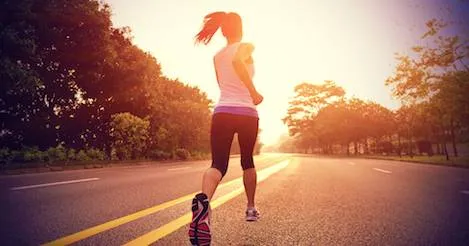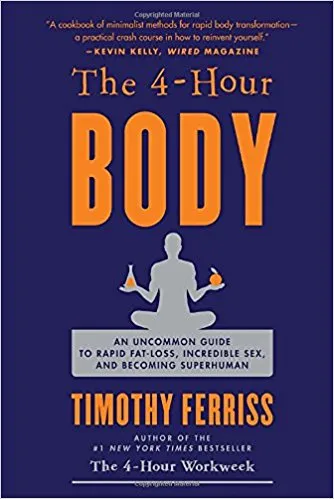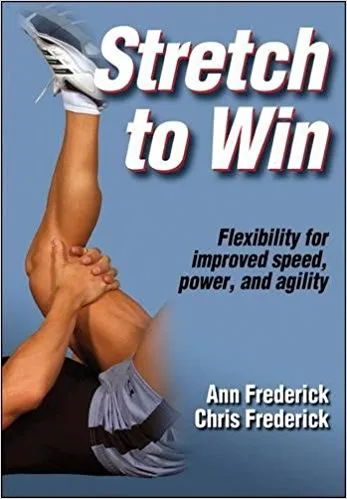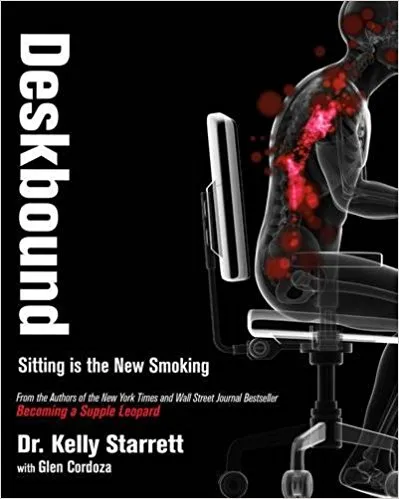
6 Of The Best Fitness Books That Can Seriously Change Your Life
This content contains affiliate links. When you buy through these links, we may earn an affiliate commission.
If a healthy body is primer to a happy mind, it becomes exceedingly important to take control of whatever aspects of our health we can. Fitness is part of prevention. Beyond that, it also signifies the quest for self-mastery. All five aspects of general fitness—cardiorespiratory endurance, muscular strength, muscular endurance, body composition, and flexibility—affect your quality of life, expand or limit your horizons.
These are what I’m constantly striving to build, but I’m limited by time and often my willpower flags, so I’m always on the lookout for the best fitness books that can fan the flames of my motivation and help me optimise on the 3–5 hours a week I dedicate to workouts.
I like the idea of hacking your body. Who doesn’t? Ferriss’s principles, derived from self-experimentation, gave me the urge and the guts to experiment on myself too. While not all his techniques worked for me, I did pick up a few gems like the 80/20 rule, which can be applied to everything from workouts to sex. The slow-carb diet didn’t really work until I added low-fat on top of it, but the only low-fat slow-carb meals in Singapore’s food courts are the fish soup, yong tau foo and Western stall and I eventually got tired of alternating between them and decided to leave this diet to the Westerners, or at least when I’m in a Western place. If the Japanese can stay lean on white rice, so can I.
I come from a family of klutzes. But I have suffered significantly fewer bruises than the rest of them because I stretch. I’m still quite a clumsy duckling though; my flexibility has stagnated for quite a while, and yoga (which I don’t do very much these days, because after 15 minutes I start thinking I’ve got better things to do) just seemed to make my joints more stiff and sore than ever.
This book helped me pinpoint some of the mistakes I’ve been making. Don’t neglect your flexibility; if you’ve ever seen my mom try to tie her shoelaces—or my dad try to squat—you’ll know you never want to lose it.
I sit a lot, bent over my laptop. My shoulders are rock-hard, and not from shoulder presses. This book declared an all-out war against sitting. It told me that sitting kills, even if you’re a regular exerciser.
Looking at the cumulative effects of sitting on all the older deskbound people around me, I was convinced. Seriously, offices should come with standing desks.
Despite their variety and sometimes contradictions in advice, what the best fitness books have shown me is the malleability and individuality of the body—no settling for an ailment you can avert, as if you don’t have a choice! Besides, I have found that if adequate care is not given to the body, the mind also suffers. Productivity starts with the small steps of discipline you take in daily life, and these books might give you the necessary nudge you need to live more effectively, heartily, and enjoyably. What do you think are the best fitness books? Want even more self-help books? We got you.
The best fitness books
These are the the best fitness books that have had the most influence in hacking my path over the mountains of my ever-resistant, failingly, mortally, miraculously human self. 1. The 4-Hour Body by Tim Ferriss
1. The 4-Hour Body by Tim Ferriss
I like the idea of hacking your body. Who doesn’t? Ferriss’s principles, derived from self-experimentation, gave me the urge and the guts to experiment on myself too. While not all his techniques worked for me, I did pick up a few gems like the 80/20 rule, which can be applied to everything from workouts to sex. The slow-carb diet didn’t really work until I added low-fat on top of it, but the only low-fat slow-carb meals in Singapore’s food courts are the fish soup, yong tau foo and Western stall and I eventually got tired of alternating between them and decided to leave this diet to the Westerners, or at least when I’m in a Western place. If the Japanese can stay lean on white rice, so can I.
2. Advanced Concepts of Personal Training by Brian D. Biagioli
Who needs a personal trainer when you can learn it all yourself? A basic understanding of physiology and bioenergetics is useful in guarding yourself against the vagaries of fitness and nutrition advice out there, and helping you build the lifestyle best for you. No one knows yourself as well as you do, so if you have the smarts and time and patience, you can use this as a starting point to not just train yourself, but also guide your loved ones, especially if they’re sick, into a healthy lifestyle. It helped me nag my sedentary mom into the gym! It lays out the plain facts textbook-style, sometimes just enough detail to help you understand stuff but not too much so as to get bogged down in it. Everything is cited rigorously, and I like that it doesn’t make hasty claims—whenever there’s contradictory research on a subject it just cites the studies and stamps it with the term “inconclusive.” Which, compared to all the false claims propagated online, comes as a breath of fresh air. This fitness book even warns you against fads that may sound totally convincing but actually have little in the way of scientific support. 3. Stretch to Win by Ann Frederick
3. Stretch to Win by Ann Frederick
I come from a family of klutzes. But I have suffered significantly fewer bruises than the rest of them because I stretch. I’m still quite a clumsy duckling though; my flexibility has stagnated for quite a while, and yoga (which I don’t do very much these days, because after 15 minutes I start thinking I’ve got better things to do) just seemed to make my joints more stiff and sore than ever.
This book helped me pinpoint some of the mistakes I’ve been making. Don’t neglect your flexibility; if you’ve ever seen my mom try to tie her shoelaces—or my dad try to squat—you’ll know you never want to lose it.
4. The China Study: The Most Comprehensive Study of Nutrition Ever Conducted And the Startling Implications for Diet, Weight Loss, And Long-term Health by Thomas Campbell
I started reading a lot about vegan diets after my mom was diagnosed with cancer. Dr. Campbell’s study is the most impressive I found, and generally considered the vegan bible. Even if you’re not vegan (I’m not), the sheer amount of data in this will blow your mind. Some of his arguments may be faulty—he has been accused of cherry-picking his research—but this will definitely makes you more wary of where you get your meat, and the potentially carcinogenic effects of what we put into our mouths. 5. Deskbound: Standing Up to a Sitting World by Kelly Starrett
5. Deskbound: Standing Up to a Sitting World by Kelly Starrett
I sit a lot, bent over my laptop. My shoulders are rock-hard, and not from shoulder presses. This book declared an all-out war against sitting. It told me that sitting kills, even if you’re a regular exerciser.
Looking at the cumulative effects of sitting on all the older deskbound people around me, I was convinced. Seriously, offices should come with standing desks.
6. Born to Run: A Hidden Tribe, Superathletes, and the Greatest Race the World Has Never Seen by Christopher McDougall
I hate running. I can’t run more than 5km without feeling either bored or too uncomfortable. But I love the idea of running. It seems so free. I would love to be able to run, I always think. If you can run effortlessly, like wild horses or deer over the plains, it would be like flying. To run and not grow weary! But in Singapore, five minutes outdoors and I’m sweating and out of breath, not because I have a weak heart but because the humidity makes me feel like I’m wading through hot water. That and the cars, roads, and traffic lights make you feel as far from a graceful gazelle as you possibly can. Still, McDougall’s book is inspirational. It’s not just a fitness book. It plants a dream in you. It fires up in me that dream of running again. It makes me feel like, yes, maybe we humans were born to run; makes me want to run, even on a treadmill, just so that when I go to beautiful places I can run like one of those supercool Tarahumara natives who run like it’s in their blood.Despite their variety and sometimes contradictions in advice, what the best fitness books have shown me is the malleability and individuality of the body—no settling for an ailment you can avert, as if you don’t have a choice! Besides, I have found that if adequate care is not given to the body, the mind also suffers. Productivity starts with the small steps of discipline you take in daily life, and these books might give you the necessary nudge you need to live more effectively, heartily, and enjoyably. What do you think are the best fitness books? Want even more self-help books? We got you.














